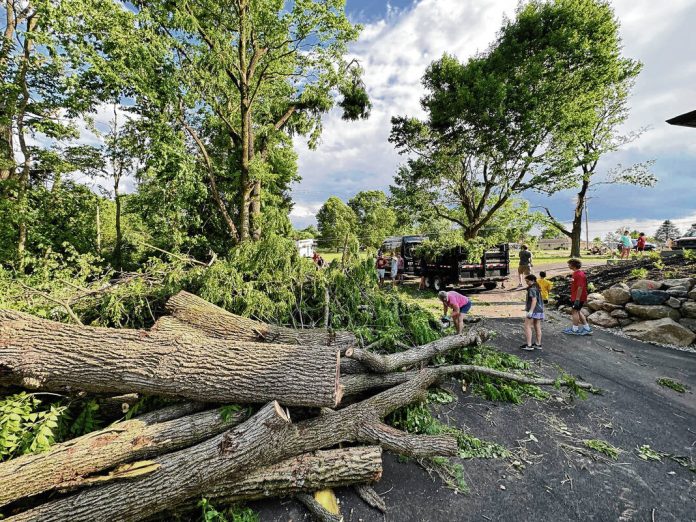Johnson County council members approved spending $400,000 to pay for work done to clean up debris from the June 25 tornado.
The EF-2 twister had peak winds of 115 mph, touching down at 4:13 p.m. that day and cutting a path across the unincorporated White River Township. It lasted for 10 minutes, having a path length of 5.4 miles, according to the National Weather Service. The area with the most damage from the tornado was around State Road 135 north of Smokey Row Road and south of Stones Crossing.
Though the tornado caused damage, it was not enough to declare the damaged area a federal disaster. Because of that, the cost to clean up debris fell on local government.
The Johnson County Highway Department hired three contractors — SaveATree, Freedom Enterprise LLC and Prestige LLC — to handle picking up woody debris from fallen trees around affected areas in White River Township.
On Monday, Luke Mastin, highway supervisor, requested the county council approve taking $400,000 from the county cumulative capital development fund to cover the entire cost of the invoices for those services. Mastin said all the debris on properties in the tornado-damaged area of White River Township has been cleaned up.
Council members voted unanimously to approved the appropriation. The fund still has a healthy cash balance, said Jonathan T. Myers, council president.
Up next, Mastin said he plans to send a letter to the U.S. Department of Agriculture to request help to assist in cleaning up waterways in White River Township that were affected by the tornado. Mastin said many large trees fell in waterways, and the potential damage could affect public infrastructure including culverts and bridges.
Mastin received approval from the Johnson County Board of Commissioners on Monday to pursue that investigation. The letter will notify the USDA that the county has concerns about downed trees and erosion caused by a natural disaster. The USDA can assist with its Watershed Protection Program and by using the Natural Resources Conservation Service.
“The NRCS office can start surveying and assessing any damages along those lines and provide us with some cost estimates on what might be needed to address those, so that we don’t have issues with our culverts and bridges, ” Mastin said.





